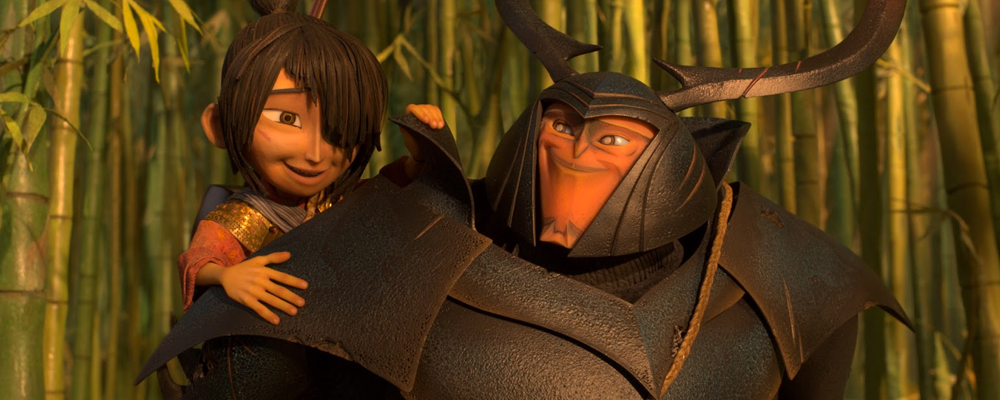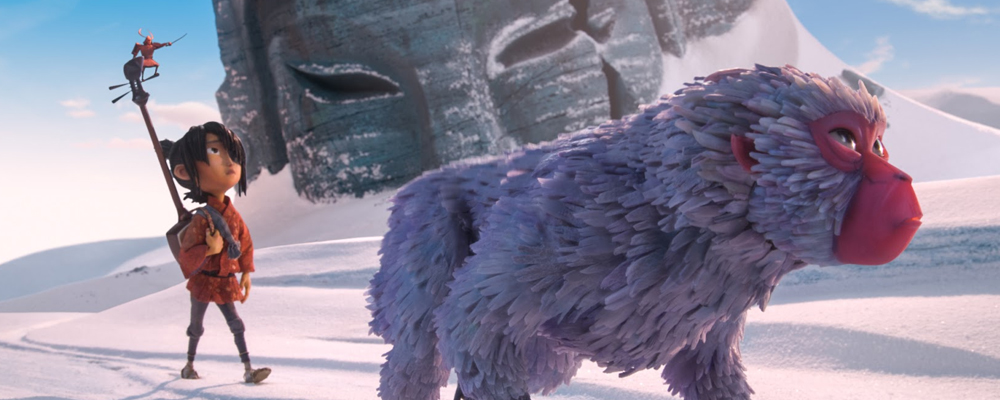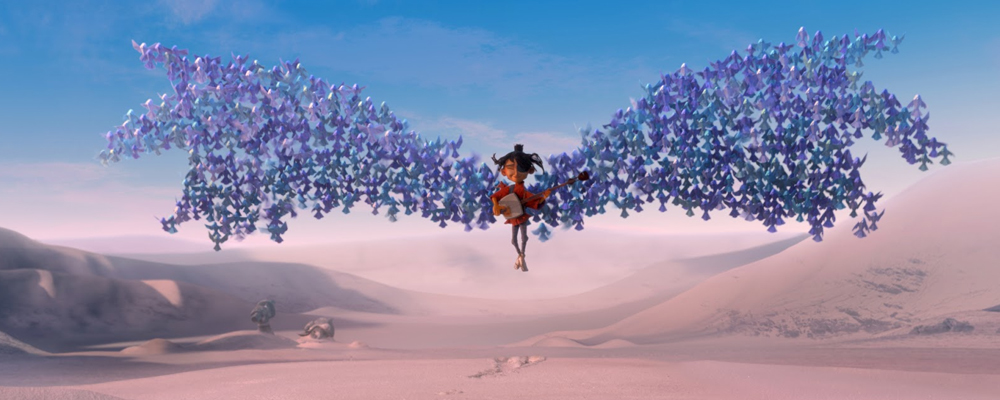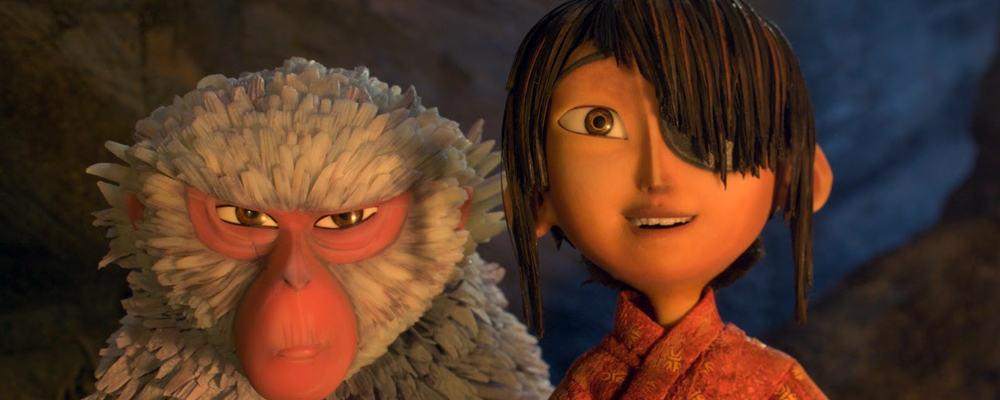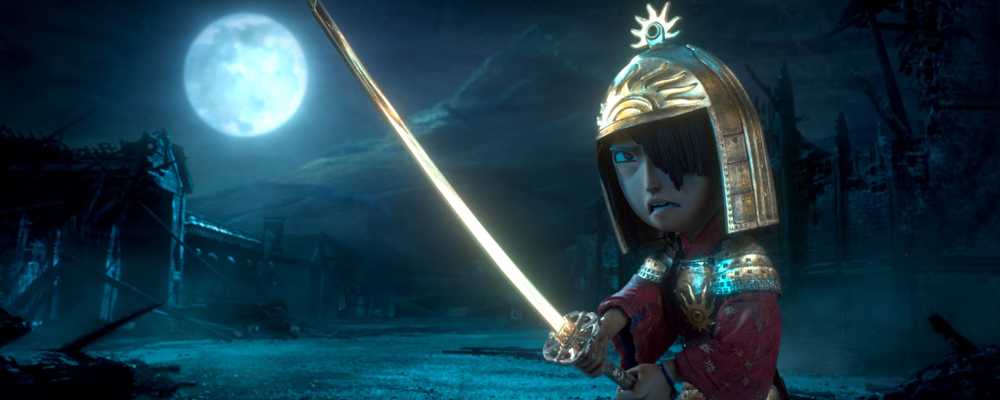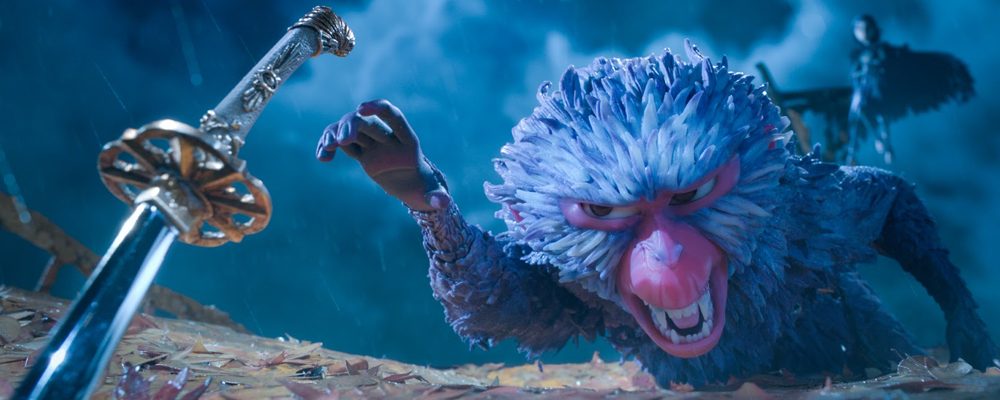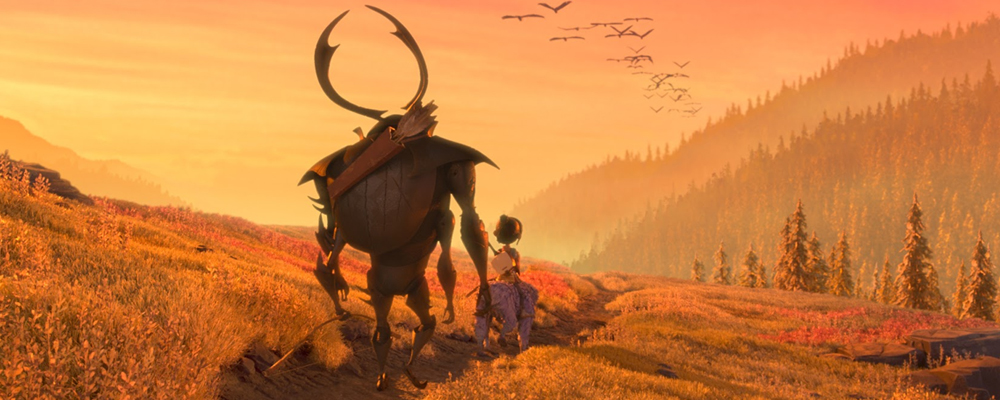‘Kubo and the Two Strings’ Is a Magnificent Reminder of the Magic of Storytelling
Allyson Gronowitz
“If you must blink, do it now.” Thus begins “Kubo and the Two Strings,” a refreshingly original stop-motion animated tale set in ancient Japan. It’s good advice—you won’t want to miss a second of this enchanting ode to the power of storytelling.
The floppy-haired, one-eyed Kubo (voiced by Art Parkinson) is the son of samurai Hanzo and a powerful goddess. Kubo cares for his ailing mother in the evenings while making a living by day as a storyteller in the town square. Using his mystical and ever-growing powers, Kubo regales enthusiastic crowd with the legend of his warrior father, as the melodic strumming of his shamisen (a three-stringed lute) brings Kubo’s intricately crafted origami to life.
Kubo’s story comes alive in a more literal way after his presence is revealed to the Moon King (played by perennial villain Ralph Fiennes), who sends his cold, malicious daughters (an echo chamber-y Rooney Mara) after Kubo. Fortunately for Kubo, he is aided by the no-nonsense, fiercely protective Monkey, voiced by a razor-sharp Charlize Theron, and her dispositional opposite, Matthew McConaughey’s goofy amnesiac Beetle.
“Kubo and the Two Strings” quickly settles into a familiar format, as our hero and his two sidekicks set out on a quest to amass magical objects that will protect him from the Moon King. But the film itself is far from ordinary— Monkey has more wit and charm than your token worrywart, and Beetle’s comic relief pokes fun not just at himself, but at the larger conventions of the genre. “Kubo and the Two Strings” has meaningful messages to convey— and it does so beautifully— but it also softens the blow by not taking itself too seriously, as so many contemporary films do.
The film’s director, Travis Knight, is a longtime animator as well as the head of independent stop-motion studio Laika (“The Boxtrolls,” “ParaNorman”), and his decision to take on his first directing gig stemmed from his identification with the lead character— like Kubo, Knight and his creative team embrace meta-commentary by presenting a tale that prizes the transformative power of storytelling. Kubo’s euphoric performance in the town square is one of the most memorable movie scenes of the year, due in no small measure to the breathtakingly intricate and imaginative animation. The visuals are dazzling, from the glittering beauty of a sunset on the ocean to the fantastical yet tactile specter of a ship made entirely of autumn leaves.
In the film, Kubo himself is responsible for the latter object, but his strengthening magical prowess sets Monkey on edge, as she continuously insists that real life “isn’t one of your stories!” But it is, of course, and his life story is the one which matters most. “Kubo and the Two Strings” cleverly and compellingly extends the motif, highlighting the importance of personal memories, which are proclaimed “the most powerful kind of magic there is.”
“Kubo and the Two Strings” is deeply rooted in Japanese culture. Visually, the film is inspired by traditional Japanese art such as ukiyo-e (woodblock paintings) and origami. Thematically, “Kubo” tackles the concept of a war between the “perfect” Heavens and the “imperfect” Earth, delving into the ethereal spirit realm as well with graveside lanterns and soul-transporting herons. Yet while Theron, McConaughey, Fiennes and especially Parkinson deliver masterful and engaging voice performances, one can’t help but wish that some of the main roles were given to actors with actual Japanese heritage; George Takei and Cary-Hiroyuki Tagawa are wasted as mere villagers.
Even so, the respect for the culture is apparent, and the movie presents a smart exploration of heavy topics while balancing the lightness and wonder of the mythical. For a film that apotheosizes storytelling, “Kubo and the Two Strings” appropriately does a stellar job of tying up its own story in a neat bow, circling back to previously mentioned themes, plot points and characters. The film’s ending is bittersweet in a way that is also a bit daring, but utterly satisfying. After all: “The end of one story is merely the beginning of another.”
“Kubo and the Two Strings” releases nationwide on Aug. 19.

